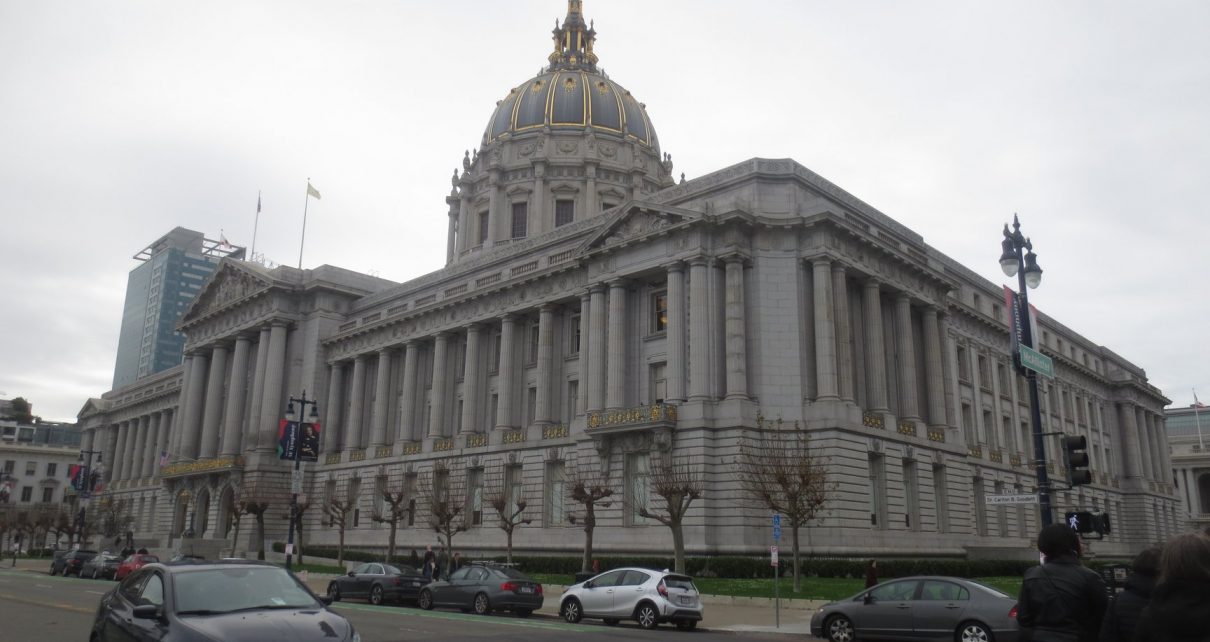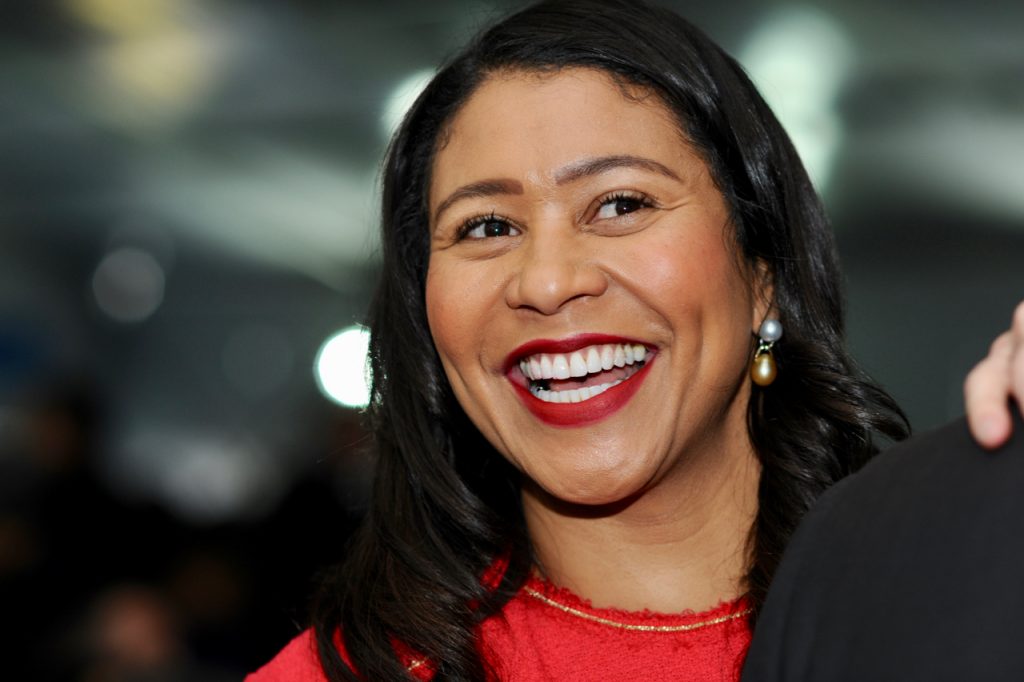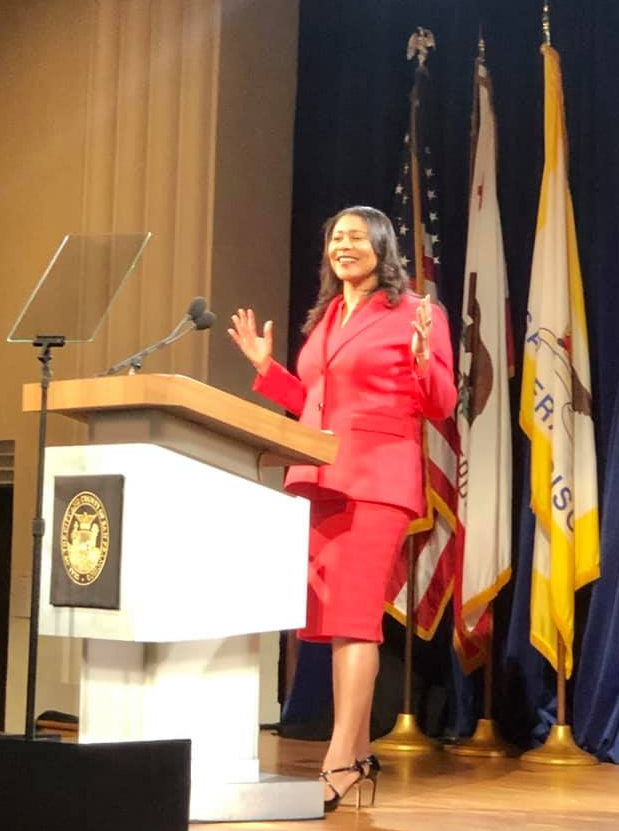
San Francisco City Hall (Photo: Evan Symon for California Globe)
Two San Francisco Police Commissioners Leave Meeting Following Criticism Of Mayor’s Recent Ballot Proposal
A sitting San Francisco Mayor lost control of the Commission for the first time in decades
By Evan Symon, October 19, 2023 4:10 pm
The rift between San Francisco Mayor London Breed and the San Francisco Police Commission grew late on Wednesday following two Breed appointees to the commission walking out of the meeting.
For the past several years, there has been growing dissent between both the Mayor and the commission. The constantly high crime rate within the city, Breed’s back and forth support for the SFPD, massive SFPD reductions, and the resignation of appointed Police Commission members because of multiple failed actions have all been ever present in the first few years of the decade. Last year, Breed began going after her own appointees to the Commission in public, calling one of them, Max Carter-Oberstone, “dishonest”.

That kicked off the latest cycle of distrust, culminating in Carter-Oberstone voting against Commissioner Larry Yee, a loyal appointee of Breed, as commission president. Because of the Police Commission having 4 of it’s 7 appointees coming from the Mayor, the Commission has historically been controlled by what the Mayor wants. With Carter-Oberstone voting against Yee and having Cindy Elias become Commission President instead, it meant that a sitting San Francisco Mayor lost control of the Commission for the first time in decades.
Breed subsequently tried to get Carter-Oberstone to resign, pointing out that he had already signed a resignation. However, this backfired on the Mayor when it was revealed that she has dozens of appointees do this as sort of a loyalty oath, resulting in it becoming a major scandal and ultimately banned by the Board of Supervisors earlier this year. Throughout the year, Breed and the Commission continued to butt heads, with Carter-Oberstone becoming an even larger embarrassment to Breed by becoming the Commission Vice President.
This led to Breed’s Tuesday announcement proposing a March 2024 ballot initiative that would ease several police restrictions. Under the proposal, San Francisco citizens would vote on if police would be allowed to use and install surveillance cameras, AI, drones, and other similar technology. The Police Commission would also reform how the time of officers is spent, reducing paperwork to only being 20% of the job and giving them more time on the streets. Finally, the Police Commission itself would be reformed, increasing accountability.
“Some of the changes to policies have limited our officers’ ability to be as effective as we know we they can,” said Breed in a speech on Tuesday. “People are always wondering why didn’t the police do this? Why didn’t the police do that? And it all goes back to many of these new, consistently changing, conflicting policies that have not helped with reforms. They have only made San Francisco less safe. The ballot measure will rein in the Police Commission, which is controlled by people who govern by ideology and personal interest, not by public safety or policing best practices. We want reforms to our police department, but unfortunately, members of the Police Commission have gone way too far.”
Breed, police commission rift continues to grow
The latter part irked many Commission members, who said that Breed was essentially blaming them for the city’s crime problems and throwing them under the bus. Others didn’t like the fact that Breed did not even consult them on the proposal matter.
With anger toward the Mayor still boiling, many Commission members went after Breed and the ballot measure during the Commission meeting on Wednesday. Commissioners, led by Carter-Oberstone, began talking about the Mayor and the recently announced ballot measure, criticizing both.
“That’s because this proposal is not so much about public safety as it is about politics,” said Carter-Oberstone. “It’s about blaming the commission.”
Commissioner Debra Walker immediately interrupted him, saying that he wasn’t allowed to discuss the ballot proposal, especially because it wasn’t on the agenda. When Carter-Oberstone continued, Walker and Yee both left. As two other Commissioners were out that night, it left the Commission without a decorum.
“I guess we’ll sit tight then until our friends rejoin us,” continued Carter-Oberstone before the meeting abruptly went into a recess. “Some commissioners apparently wished to silence an open and frank discussion on these important matters of public interest.”
While the Commission meeting did later finish in earnest, the rest of the meeting was also filled with tension. On Thursday, Walker explained that she had walked out not to silence criticism, but because discussing the ballot measure was illegal.
“A Brown Act violation was happening,” explained Walker. “He was discussing a ballot measure. He was discussing something not on the agenda. Both illegal.”
Overall, the meeting showed that a huge rift between the Commission and Breed and her supporters still very much exists, and that the Mayor exacerbated things by launching the proposal the previous day.
“I mean, Breed knew what she was doing,” said Erica Garcia, a Bay Area-based legal analyst who focuses on police issues, to the Globe. “She has been frustrated by Carter-Oberstone and the Commission drifting away from her. And the ballot measure she proposed this week would rein them back in as well as put the city’s crime problems on them. Passing the buck under guise of a ballot measure.”
“The meeting yesterday, while just a smaller incident over this huge battle over law enforcement in San Francisco, really showed what Breed’s actions did. It made the situation even worse, and you can bet that now that those Commissioners not on her side, which is the majority still, will go for some more things she won’t like.
“Oh and Walker, who was a pure political appointee last year based solely on her experience as an LGBT advocate, was completely in the wrong. The way Carter-Oberstone said it wasn’t advocating a position and was an appropriate topic. Walker just didn’t like what was being said.”
“This isn’t over by a longshot, and for the rest of the year going into 2024, tensions between Breed and the commission will continue and will play a part in the ongoing crime problem in the city.”
- San Diego Country Supervisor Jim Desmond Calls San Diego New Epicenter Of Illegal Crossings By Migrants - April 27, 2024
- Oracle Moving Headquarters Out Of Austin Only 4 Years After Moving Out Of California - April 26, 2024
- Congressman Adam Schiff Robbed of his Luggage in San Francisco Car Break In - April 26, 2024





These so-called reforms are more about expanding the surveillance state than law and order. What good does it to record drug deals and violent crime when the city will let these crooks out without bail?
Exactly CW